
Biden and Modi cheer booming economic ties in visit that also reckoned with India’s record on rights
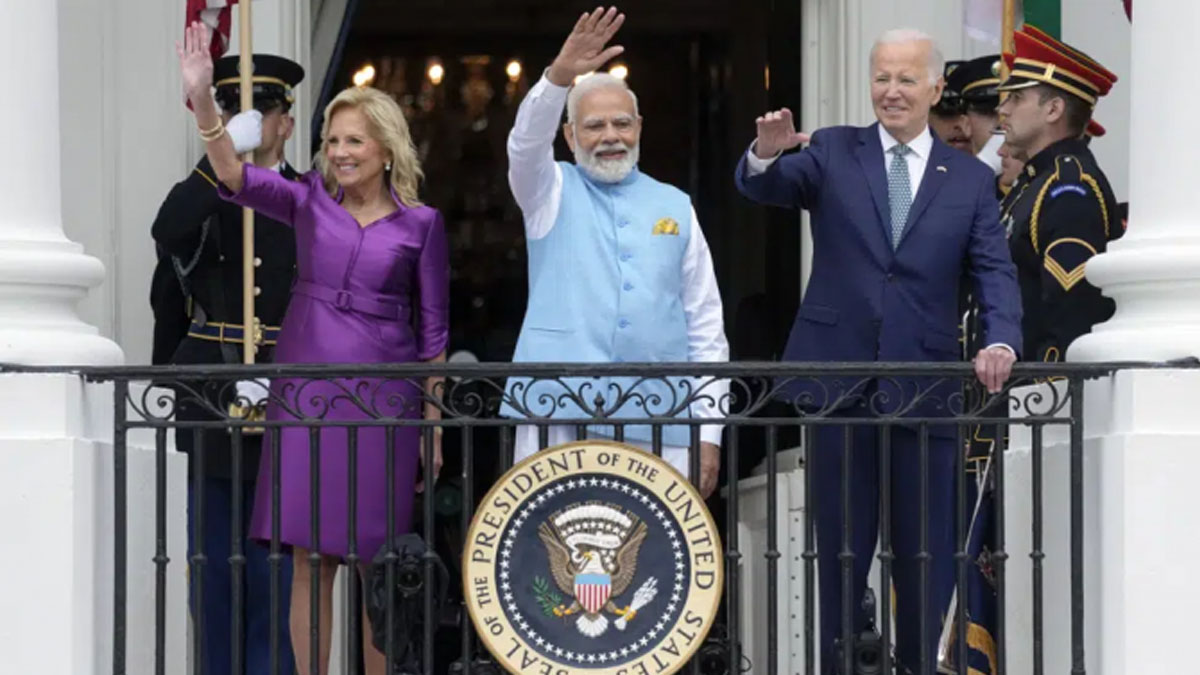
US President Joe Biden on Thursday pronounced the U.S.-India relationship never stronger and rolled out new business deals with Indian Prime Minister Narendra Modi as human rights activists and American lawmakers questioned the administration’s decision to honor the leader with a pomp-filled state visit.
In a joint news conference with Modi, Biden called the relationship between the U.S. and India among the most consequential in the world and “more dynamic than at any time in history.” He underscored how two of the world’s most powerful democracies were cooperating on issues such as the climate, health care and space, saying that the U.S-India economic relationship was “booming.”
But Modi bristled at a reporter’s question about his country’s commitment to democratic values as the country has seen an erosion of religious, political and press freedoms under his watch.
“Democracy is our spirit,” Modi, who rarely takes questions from journalists, said through an interpreter. “Democracy runs in our veins. We live democracy and our ancestors have actually put words to this concept.” He said India has “proved that democracies can deliver and when I say deliver, this is regardless of class, creed, religion, gender.”
Yet Modi has faced criticism over legislation amending the country’s citizenship law that fast-tracks naturalization for some migrants but excludes Muslims, a rise in violence against Muslims and other religious minorities by Hindu nationalists, and the recent conviction of India’s top opposition leader, Rahul Gandhi, for mocking Modi’s surname.
Nevertheless, later in a 59-minute address before a joint meeting of Congress, Modi insisted that in India “diversity is a natural way of life.”
“We are home to all faiths in the world, and we celebrate all of them,” added Modi, in a line that brought many cheering lawmakers to their feet.
The premier’s description runs counter to accusations by rights groups of widespread attacks and discrimination against India’s Muslims and other minorities under Modi.
A group of more than 70 lawmakers wrote to Biden this week urging him to raise concerns about the erosion of religious, press and political freedoms during the visit. At least six Democratic lawmakers —Democratic Reps. Cori Bush of Missouri, Rashida Tlaib of Michigan, Ilhan Omar of Minnesota, Greg Casar of Texas, Jamaal Bowman and Alexandria Ocasio-Cortez of New York — boycotted Modi’s address to Congress, because of concerns about his human rights records.
“When it comes to standing up for human rights, actions speak louder than words,” Bush, Tlaib, Omar and Bowman said in a joint statement. “By bestowing Prime Minister Modi with the rare honor of a joint address, Congress undermines its ability to be a credible advocate for the rights of religious minorities and journalists around the world.”
Standing alongside Modi, Biden emphasized that press, religious and other fundamental freedoms should be at the core of how both democracies operate. During their Oval Office meeting, Biden said, he and Modi had a “good discussion about democratic values” while Modi said “there’s absolutely no space for discrimination” when pressed about his own commitment on human rights.
The state visit, just the third of the Biden’s presidency, was certainly a glitzy affair.
Thousands gathered on the White House South Lawn for the welcoming ceremony, listening to performances by violinist Vibha Janakiraman and the a cappella group Penn Masala. As Modi arrived, the crowd — including many members of the Indian diaspora — broke out in a chant of “Modi, Modi, Modi.”
“All eyes are on the two largest democracies in the world, India and America,” Modi said. “I believe that our strategic partnership is important. I’m confident that working together will be successful.”
Later, Modi told Congress that “our partnership augurs well for the future of democracy” as the two countries expand partnerships in defense, semiconductor manufacturing and other industries. He also cheered the “samosa caucus”—the five U.S. House members of Indian descent—and Vice President Kamala Harris, who is Black and of Indian descent, as examples of the impact of the diaspora.
Biden administration officials say honoring Modi, the leader of the conservative Hindu nationalist Bharatiya Janata Party, is Diplomacy 101. The U.S.-India relationship will be vital in coming decades as both sides navigate an ascendant China and the enormity of climate change, artificial intelligence, supply chain resilience and other issues.
“On the issues that matter most that will define the future, our nations look to one another including on critical regional and global issues,” Biden said.
Among the announcements made Thursday is an agreement that will allow U.S.-based General Electric to partner with India-based Hindustan Aeronautics to produce jet engines for Indian aircraft in India and the sale of U.S.-made armed MQ-9B SeaGuardian drones.
The Biden administration also announced plans to bolster India’s semiconductor industry. U.S.-based Micron Technology has agreed to build a $2.75 billion semiconductor assembly and test facility in India, with Micron spending more than $800 million and India financing the rest. U.S.-based Applied Materials will launch a new semiconductor center for commercialization and innovation in India, and Lam Research, another semiconductor manufacturing equipment company, will start a training program for 60,000 Indian engineers.
On the space front, India signed on to the Artemis Accords, a blueprint for space exploration cooperation among nations participating in NASA’s lunar exploration plans. NASA and the Indian Space Research Organization also agreed to make a joint mission to the International Space Station next year.
“We made critical and emerging technologies the pillar of our next generation partnership to ensure these technologies promote and protect our values, remain open, accessible, trusted and secure,” Biden added. “All this matters for America, for India and for the world.”
At the welcoming ceremony, Modi called the Indian diaspora in America — the millions of immigrants and their children from the subcontinent living in the U.S. — “the real strength” of the U.S.-India relationship. He said the honor of a formal state visit — the first in the U.S. for India since Barack Obama honored Modi’s predecessor, Manmohan Singh, in 2009 — reflected the positive impact Indians are having worldwide.
Modi, the son of a tea seller who rose to be India’s premier, also recalled that the first time he visited the White House was three decades ago as a “common man.”
“I have come here many times but today for the first time, the doors of the White House have been opened for the Indian American community in such large numbers,” Modi said to an estimated crowd of 7,000.
Despite the major deals, the visit was shadowed by concerns laid out by rights activists and lawmakers who question Modi’s commitment to democratic principles.
In 2005, the U.S. revoked Modi’s visa to the U.S., citing concerns that, as chief minister of the state of Gujarat, he did not act to stop communal violence during 2002 anti-Muslim riots that left more than 1,000 people dead. An investigation approved by the Indian Supreme Court later absolved Modi, but the stain of the dark moment has lingered.
Biden and Modi have also had differences over Russia’s war in Ukraine. India abstained from voting on U.N. resolutions condemning Russia and refused to join the global coalition against Russia. Since the start of the war, the Modi government has also dramatically increased its purchase of Russian oil.
White House officials note that there are signs of change in India’s relationship with Russia, which has long been New Delhi’s biggest defense supplier.
India is moving away from Russian military equipment, looking more to the U.S., Israel, Britain and other nations. Modi recently met with Ukrainian President Volodymyr Zelenskyy and has spoken out about his worries about the potential use of nuclear weapons by Russia.
Modi, before Congress, said the war is “causing great pain” in Ukraine and having residual effects on Europe and beyond.
“This is not an era of war, but it is one of dialogue and diplomacy” Modi said. “And we must all do what we can to stop the bloodshed and human suffering.”
Without specifically naming China, Modi also addressed heightened tensions in the region, saying “dark clouds of coercion and confrontation are casting their shadow in the Indo Pacific.”
Later Thursday, Modi attended a lavish White House state dinner in his honor.


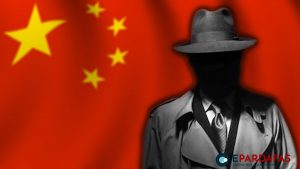

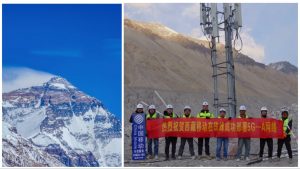
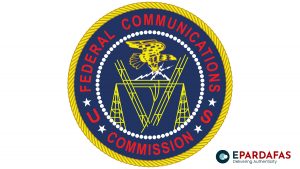
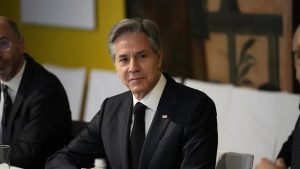


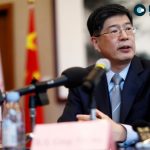
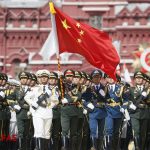

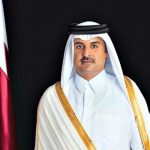

Comments